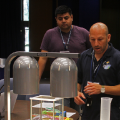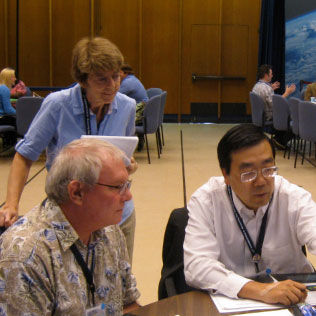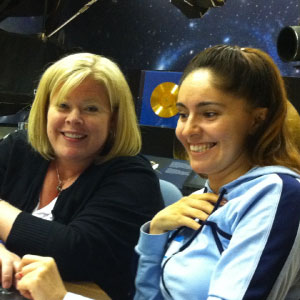Education: Workshops
Aquarius works closely with COSEE-Ocean Systems for its Education and Public Outreach
endeavors, including the workshops described below.




August 7-8, 2015
During this workshop, educators worked directly with JPL scientists and engineers to discover how NASA Earth-observing satellites and
aircraft are providing data on ocean circulation, the water cycle, and climate issues such as sea level rise. On Day 1, workshop
participants heard from Aquarius, AirMOSS, GRACE, and Jason-3 mission specialists about current research efforts. On Day 2, the educators
engaged in hands-on activities and created a personal plan of action to bring newly-learned content into the classroom.
November 9-10, 2012
Selected educators worked closely with eminent scientists to prepare and deliver educational materials related to the
NASA Aquarius satellite instrument, launched in June 2011 to measure the salinity of our global oceans. This experience
provided the resources to help educators understand, explain and teach 1) how the processes of the water cycle relate to
the oceans, 2) how ocean salinity affects ocean circulation, 3) how changes in the ocean's circulation can produce large
changes in climate, and 4) how new technology can enhance the gathering and manipulation of oceanic data.
June 2-4, 2011
To celebrate the June 2011 launch of the Aquarius/SAC-D satellite, COSEE-Ocean Systems conducted a workshop for K-12
educators at NASA's Jet Propulsion Laboratory (JPL). Day 1 of the workshop featured eminent NASA scientists who worked
collaboratively with educators to examine connections between the water cycle, ocean circulation, climate and sea surface
salinity. On Day 2, educators toured the JPL facility, attached scientist-vetted content (e.g., animations and images,
news items) to online concept maps, and conducted "hands on" activities that supported the theme of the workshop:
ocean-climate connections.
